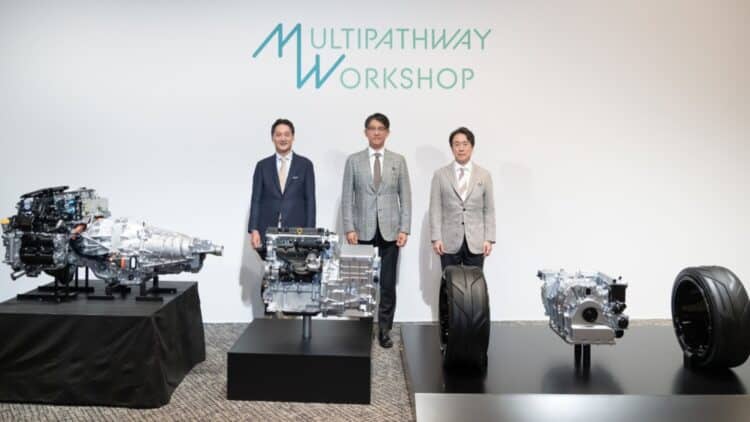Toyota just got punched in the face. Imagine working hard on something, which can take years to build and research, only to be told it is harmful to the environment and you should consider getting rid of it. It is a blow, because what do you mean? The crazy part is that this production by Toyota is actually one of the most respected fuel resources that every other automaker is working on, and it has been considered efficient. Then, what is different this time around? It was supposed to be the next big deal, a magnificent creation by the car brand in obedience to producing a sustainable fuel-driven car.
Toyota thought it was doing the right thing and immersed itself in the hydrogen cars
Just when Toyota thought it had made it, it is now receiving backlash. You know, hydrogen-powered cars have been so much praised and realistically tested that automakers, scientists, engineers, and environmentalists saw it fit to be used for cars and engines. Not only in the automotive industry but also in energy generation, sustainable energy is used to reduce carbon emissions.
The sad part about all this is that Toyota did not just experiment; it went all in and manufactured hydrogen-powered cars, you know, to also tap into the world of sustainability. However, they are now being criticised for making this decision. It is confusing because we all thought we were moving in the right direction. What does it mean now for the other brands that actually have gone 100% hydrogen?
Before, Toyota’s hydrogen bet appeared to be a great idea, but today there are showing cracks
The reasons why hydrogen was a go-to for Toyota and other car brands are that
- Refuelling literally takes minutes.
- It is clean, has zero emissions, and emits water when it is burned.
- Long range. Vehicles can travel longer distances without refuelling time and time again.
Background story: During the Paris 2024 Olympic Games, Toyota presented its hydrogen-powered vehicles, and a group of scientists criticised it for that. In fact, they even issued a letter, signed by some 100 scientists, claiming that their hydrogen cars are delaying the energy transition and are questioning the real effectiveness of hydrogen-powered vehicles.
Scientists clap back: A hydrogen and electricity debate
David Cebon, Professor of Mechanical Engineering at Cambridge University, criticised Toyota for even having hydrogen-powered cars and expressed that hydrogen just drains everything; it uses more energy, it is expensive, there is no guarantee of a fully green automotive sector with the use of hydrogen, and the list goes on. However, while other factors are real, it does not take away from the fact that hydrogen is essentially a good resource.
I think this is more of a political issue regarding future energy and other underlying factors that are yet to be spoken about. Yes, the storage and infrastructure issues have been raised, and I am sure Toyota knows about it; however, it does not take away that green hydrogen is green. Of course, there are car brands such as Aptera Motors that have tested their First-ever solar cars, ready to beat hydrogen, but it is a preference.
There is nothing wrong with hydrogen. In fact, both electric vehicles and hydrogen-powered vehicles can work interchangeably to still power a green environment and a green economy. If hydrogen were so dangerous, then we would not even know so much about it or see and hear about its use in different sectors of the energy and automotive industries. Therefore, whatever the reason might be, it looks like these are just scientists trying to derail Toyota’s progress. Additionally, we have brands like Alpine that understand hydrogen as a powerful resource to switch to for events like F1.
Disclaimer: Our coverage of events affecting companies is purely informative and descriptive. Under no circumstances does it seek to promote an opinion or create a trend, nor can it be taken as investment advice or a recommendation of any kind.


